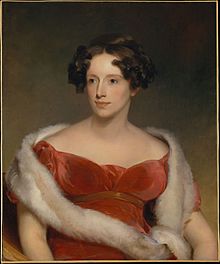John Biddle (Michigan politician)
John Biddle | |
|---|---|
Mayor of Detroit, Michigan | |
| In office 1827–1828 | |
| Preceded by | Jonathan Kearsley |
| Succeeded by | Jonathan Kearsley |
| Personal details | |
| Born | March 2, 1792 Princeton College |
| Military service | |
| Allegiance | |
| Branch/service | United States Army |
| Years of service | 1812–1821 |
| Rank | Major |
| Battles/wars | War of 1812 |
John Biddle (March 2, 1792 – August 25, 1859)
Early life
Part of the prominent Pennsylvania
Career
At the outbreak of the War of 1812, Biddle enlisted in the U.S. Army and was appointed a second lieutenant in the Third Artillery on July 6, 1812, and promoted to first lieutenant March 13, 1813.[1] He was attached to the staff of General Winfield Scott on the Niagara Frontier for most of the war. He became captain in the Forty-second Infantry October 1, 1813, served as assistant inspector general with the rank of major from June 19, 1817, to June 1, 1821,[1] and commanded Fort Shelby in Detroit for some time.[2]
After leaving the military, Biddle was appointed paymaster and Indian agent at Green Bay, Wisconsin, in 1821 and 1822.[1] He was register of the land at Detroit in Michigan Territory, 1823–1837; commissioner for determining the ancient land claims at Detroit, Mackinaw, Sault Ste. Marie, Green Bay, and Prairie du Chien.[1]
Politics and civic leadership
Biddle served as mayor of Detroit in 1827 and 1828.
Biddle was president of the Michigan Central Railroad.[1] He also served as the first president of Farmers’ and Mechanics’ Bank, and was a bank director from 1829 through 1838.[2] He was also active in the civic life of Detroit, being elected vice president of the Detroit Athenaeum, active in the Association for Promoting Female Education in the City of Detroit, and vice president (1828–1837) and president (1837) of the Historical Society of Michigan.[2]
Personal life

On January 21, 1819, he married Eliza Falconer Bradish (1795–1865), the daughter of James Bradish (1772–1799) and Margaretta Thompson (1770–1846) of New York.[2] The couple had four children that lived to adulthood:[5]
- Margaretta Falconer Biddle (1825–1913), who married Civil War general[5]
- William Shepard Biddle (1830–1901), who married Susan Dayton Ogden (1831–1878), daughter of New Jersey Supreme Court Justice
- Major James Biddle (1833–1905)
- Edward John Biddle (1836–1892)
In 1859, Biddle went to White Sulphur Springs in what is now West Virginia, for the summer, and died there.[1] He is interred in Elmwood Cemetery, Detroit, Michigan.[1]
Wyandotte
In 1818, Biddle acquired 1,800 acres (7.3 km2) of land south of Detroit.
Descendants
His grandson (William Shepard Biddle's son), also named
References
- ^ a b c d e f g h i j k l m n United States Congress. "John Biddle (id: B000441)". Biographical Directory of the United States Congress.
- ^ a b c d e f g h i j k l m n "Major John Biddle". Elmwood Cemetery. Archived from the original on March 2, 2012. Retrieved September 10, 2010.
- ^ OCLC 13694600
- Political Graveyard. Paul Haas. Retrieved 2006-07-06.
- ^ a b c Owen Picton (May 2004). "Descendants of William Biddle III". Archived from the original on November 18, 2010. Retrieved March 16, 2011.




